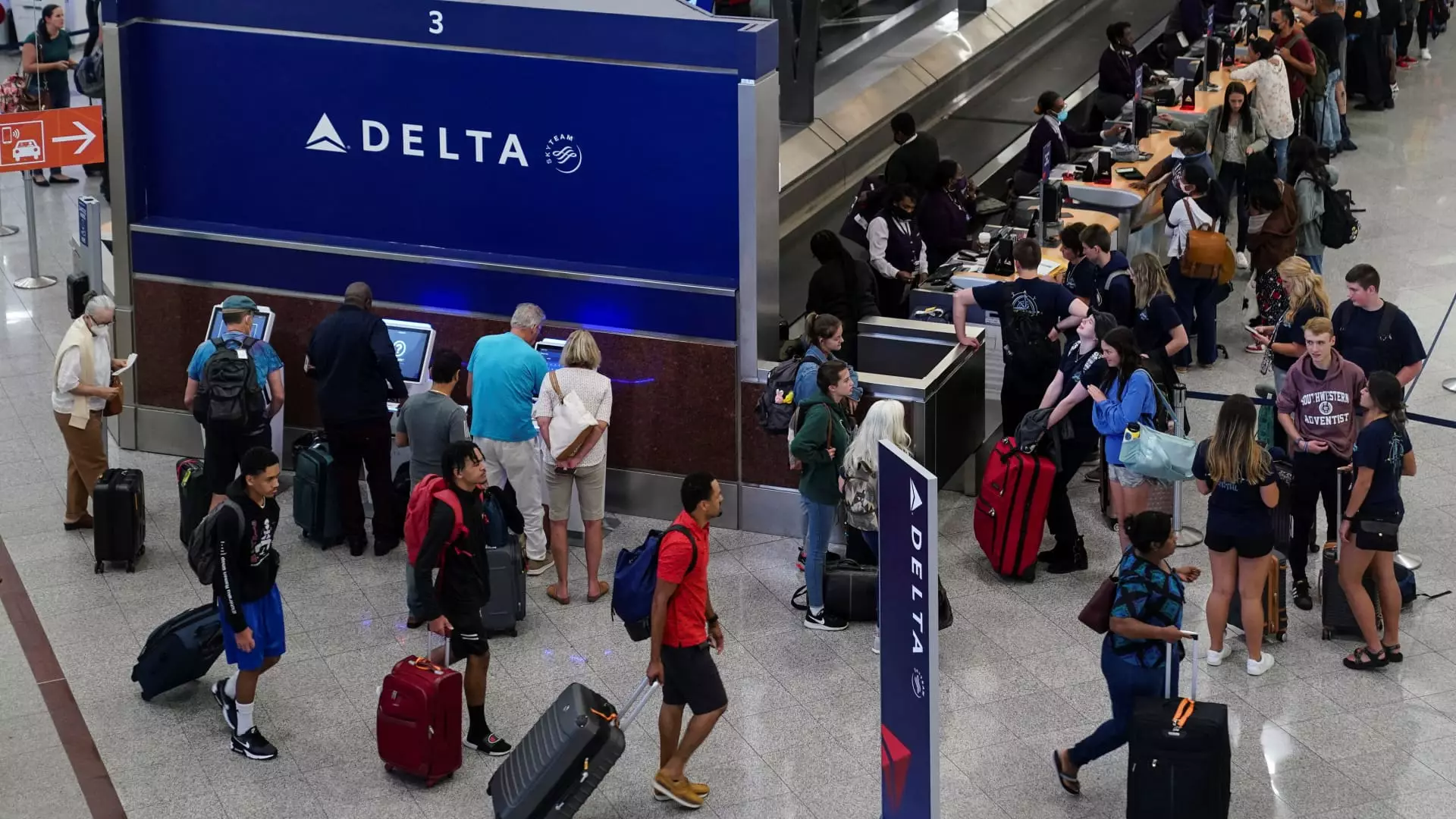Delta Air Lines has recently outlined an optimistic outlook for the coming years, projecting revenue growth that reflects an overall positive stance on the current economic landscape. With indications of a resilient economy supporting robust travel demand and elevated credit card spending, particularly among higher-end consumers, Delta appears confident about both its short-term and long-term financial trajectory. The forecast points to a revenue growth in the mid-single digits next year, aligning with analysts’ expectations of approximately 6% growth for 2024. As travel demand revives, the airline industry is entering a transformative phase where competition for premium offerings grows increasingly fierce.
Despite the promising forecasts, Delta does acknowledge challenges ahead. It anticipates a rise in operational costs, which, while remaining in the low single digits excluding fuel, indicates the complexities of managing expenses in a recovering travel landscape. Compounded with rising inflation and potential economic uncertainties, Delta is tasked with navigating these obstacles as it seeks to maintain profitability amidst shifting consumer behaviors.
A significant highlight in Delta’s strategy is its concerted move toward attracting affluent travelers. The airline’s successful partnership with American Express underlines its focus on tapping into a demographic that has seen considerable wealth growth since 2019. Delta’s projected remuneration from this partnership is an impressive $7 billion for the current year, with ambitions to escalate that figure to $10 billion over the long term. By focusing on enhancing their premium seating options and loyalty programs, Delta is strategically positioning itself to take advantage of lucrative markets, particularly as millennials and Gen Z emerge as key consumer segments in the travel industry.
Delta’s shift in revenue composition is notable, with just 43% of its revenue stemming from main cabin tickets this year, compared to 57% derived from premium offerings and loyalty programs. This marks a significant shift from a decade ago, where revenue from main cabin seats represented 60% of total earnings. The airline predicts that revenue from premium seats will surpass that of coach seats by 2027, highlighting a trend that reflects changing consumer preferences toward more refined travel experiences.
Interestingly, Delta’s optimistic outlook diverges from reports from other companies, such as Target, which has adjusted its profit forecast amid signs of declining discretionary spending. While some sectors are bracing for a slowdown, Delta’s growth strategy appears insulated from these broader economic challenges, as consumers prioritize travel experiences despite economic constraints. Additionally, the airline’s competitors, notably United Airlines, are also capitalizing on the trend of high-end travelers but report varying degrees of success. United’s stock has surged 128% this year, significantly outpacing Delta’s 60% share price increase, highlighting a dynamic and competitive landscape within the airline industry.
Delta’s strategy, which includes the introduction of more premium seating options like lie-flat suites, showcases its commitment to evolving customer expectations. In a notable shift in consumer behavior, Delta reports that over 70% of its domestic first-class seats are now purchased, a marked increase from just 12% about 15 years ago. This strategy reflects a transformative approach to cabin segmentation, as airlines introduce differentiation in premium offerings, catering specifically to high-spending travelers.
Looking ahead, Delta appears poised to enhance its segmentation strategies further, exploring innovative cabin options that appeal to high-end consumers. Although specific details remain under wraps, the potential for new offerings indicates an active engagement with market trends to maximize revenue potential. The airline’s willingness to adapt in an ever-evolving environment may prove crucial for maintaining its status as the most profitable airline in the United States.
Delta Air Lines stands at a pivotal juncture where it balances cautious optimism against a backdrop of economic uncertainty. By capitalizing on the growing demand for premium experiences and navigating operational complexities, the airline sets the stage for continued growth, leveraging its strong market positioning to thrive in a challenging yet fruitful landscape.


Leave a Reply